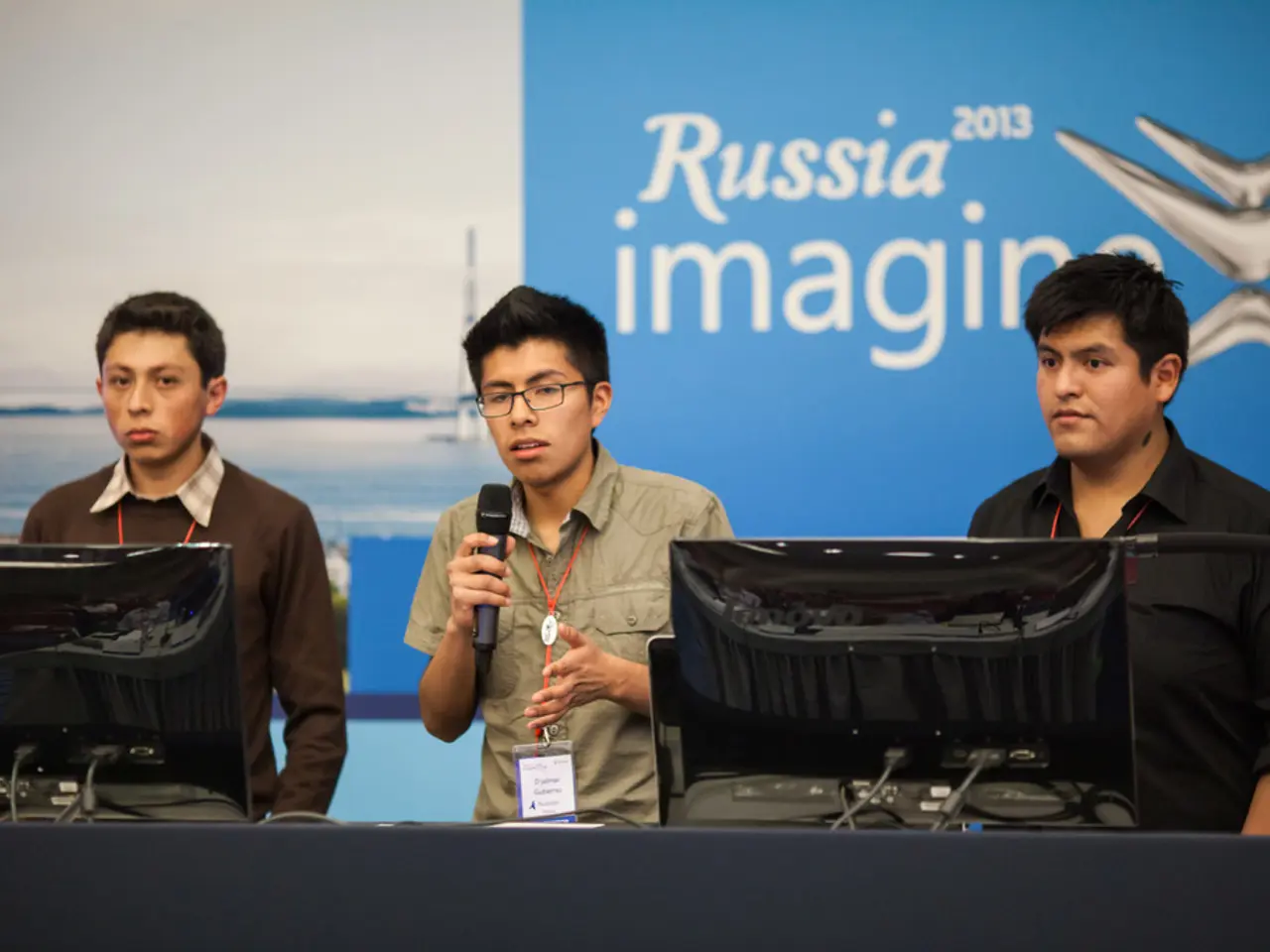Suspicion of Influence by Putin Revisited: Trump's Discourse Suggests Potential Compliance
In the lead-up to President Donald Trump's meeting with Russian President Vladimir Putin on US soil, the President's belief that Putin wanted peace in Ukraine has been put to the test.
Trump's optimism stems from several factors, including direct diplomatic engagement, perceived moderation and negotiation willingness, hope for a peace deal through mutual concessions, and framing Putin as a neighbour with shared interests.
Trump arranged high-level meetings with Putin and Ukrainian President Zelenskyy, indicating his belief that face-to-face talks could lead to progress. He emphasised the importance of building a relationship between Putin and Zelenskyy to enable negotiations, reflecting his hope that dialogue was possible.
Administration officials and Trump himself noted a "moderation in the way Russia is thinking" and highlighted the importance of Russia agreeing to peace terms for any deal to end the war. This suggests Trump's view that Putin was at least open to negotiation—even if complex and difficult.
Trump stressed that peace requires each side to "get something and give something," and that the process is hard but necessary. This indicates his belief that diplomacy, rather than continued conflict, was the viable path forward.
During their meeting, Putin spoke of historical ties between Russia and the US, possibly reinforcing in Trump’s mind the conceptual basis for peaceful coexistence despite conflicts. Trump frequently expressed urgency in ending the war to save lives, which may have contributed to an optimistic interpretation of Putin’s intentions as sincere or at least negotiable.
However, Russia's continued attacks and hardline stances in parallel to peace talks have caused tension between Trump’s optimism and on-the-ground realities. This disconnect may reflect Trump’s focus on diplomacy and personal rapport rather than only interpreting Putin’s actions strictly by adverse military moves.
Recent polls have shown that many Americans have little or no confidence in Trump to make wise decisions about the war in Ukraine. A Pew Research Center poll released Thursday showed 59% of Americans had little or no confidence in Trump, while only 16% were very confident and 24% were only somewhat confident.
Trump's upcoming meeting with Putin on US soil is at risk of making him look like a dupe if Putin continues with his aggressive actions. Trump has expressed his belief that a peace deal in Ukraine would be easier on Thursday, but the onus is on Putin to prove Trump's optimism correct.
Friday could be Trump's chance to prove those people wrong and forge a good deal. Secretary of State Marco Rubio agreed with this assessment. However, Trump's sudden criticism of Putin may be a result of Putin's reluctance to help deliver Trump's promised peace deal, indicating that Putin's actions over the past six months have shown otherwise.
Trump later promised a deal was impending with Putin regarding Ukraine, but previous polling has also shown that many Americans fear that even a potential deal with Russia will prove too favorable to Putin. Trump's statements about Putin's lack of action might indicate a tacit acknowledgement that he had misjudged Putin.
Trump has been asking White House officials and Europeans what has changed about Putin, suggesting that he is open to re-evaluating his beliefs about the Russian President. Whether Trump will be able to navigate the complex diplomatic landscape and achieve a peace deal remains to be seen.
- The upcoming meeting between President Trump and Russian President Putin raises questions about politics and policy-and-legislation, as President Trump's optimism about Putin's intentions for peace in Ukraine is being tested.
- The discussions about war-and-conflicts, such as the ongoing conflict in Ukraine, are not only happening at the highest level of diplomacy but also in the general-news, as Americans' confidence in President Trump's ability to make wise decisions regarding those conflicts is waning.







